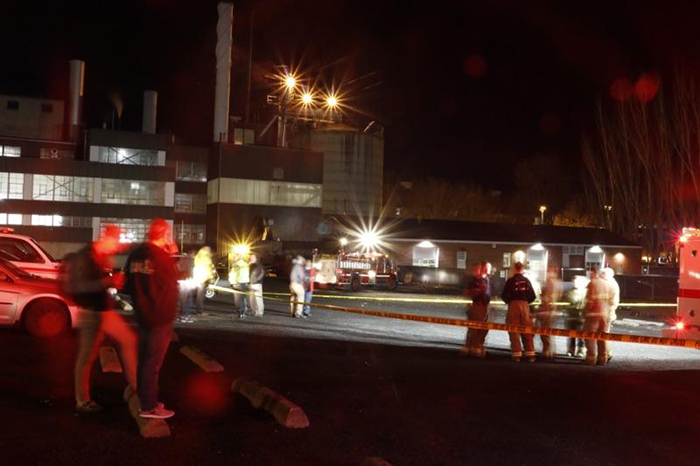UI updates safety policies for RSOs
New RSO policies designed to prevent incidents like rocket fuel explosion last spring
EZEKIEL NELSON | Daily Evergreen File
Emergency responders gather after a rocket fuel explosion injured students on April 13.
September 28, 2017
Months after the rocket explosion, the University of Idaho is changing their Student Organization policy in an attempt to better protect staff and students from further incidents.
On April 13, a rocket fuel explosion left four UI students injured. In the weeks that followed, university administration conducted an internal audit which found that more protections were needed for students involved in Registered Student Organizations.
The accident involved students from the Northwest Organization of Rocket Engineers (NORE) testing rocket fuel in a university parking lot. The students who were in range of the explosion were sent to the hospital.
Moscow Police Chief James Fry Jr. told the Washington Post in April that the explosion was an accidental event and that no one was at fault.
NORE Adviser John Crepeau declined to comment on the incident.
According to the internal review report, some changes would happen over the summer, but the majority of new policies would take effect Aug. 1.
Changes detailed in the report included the UI Department of Student Involvement creating a special high-risk category waivers, which in addition to the regular RSO’s waivers, will be kept for two years.
The report also states that the administration will update the risk management section in the RSO handbook and high-risk RSO’s will be required to meet with the Office of Risk Management and Environmental Health and Safety to develop a plan which does not put students at risk.
The incident report states that one of the policy changes that was implemented is to clarify the role of students and advisors within organizations.
Jodi Walker, the university’s spokesperson, said that after the explosion, the university decided to create a task force that would better protect students.
“We have moved beyond this incident to be able to create the safest environment as possible for our faculty and staff,” she said.
She said that policies put into place are not meant to be punitive.
“We implemented policies that give clearer instructions that give expectations on clubs,” Walker said. “The policies were not meant to be punitive.”
Shawn O’Neal, director of Student Involvement, said that the University of Idaho always trains organizations in risk training.
“The event that happened last year was very unfortunate,” he said. “What you do in these situations as a group is that you take a really good look at what you are doing.”
O’Neal said that the university is trying to identify activities that have a risk factor and prevent future accidents from happening.
“This is a university, we’re not going to stop sponsoring science,” O’Neal said. “We’re not going to stop encouraging students to pursue science.”









